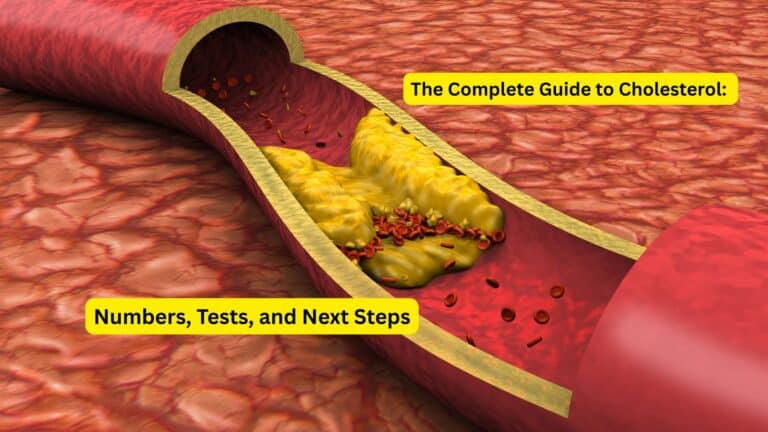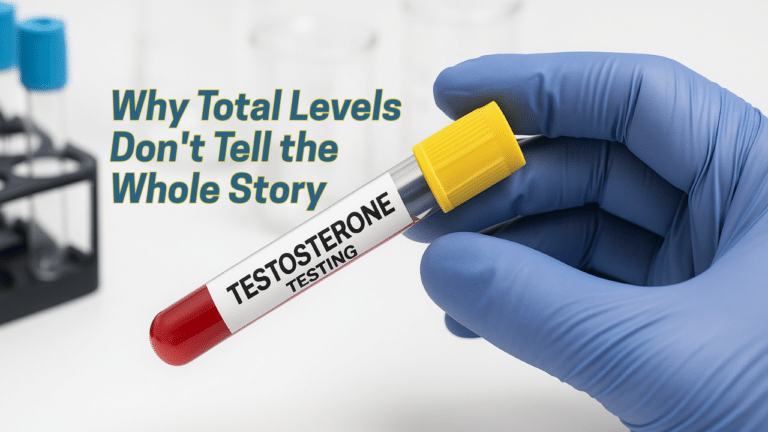Persistent fatigue affects millions of people, yet finding the underlying cause can feel like searching for a needle in a haystack. While occasional tiredness is normal, unexplained fatigue that lasts for weeks or months often signals an underlying health condition that requires investigation. Laboratory testing provides the most direct path to uncovering the root causes of chronic exhaustion, from common issues like anemia and thyroid dysfunction to more complex conditions involving nutrient deficiencies, hormonal imbalances, or autoimmune disorders.
Core Lab Tests for Fatigue
The foundation of any fatigue workup begins with comprehensive blood panels that assess your body’s most essential functions. These initial tests can quickly identify the most common culprits behind persistent tiredness and guide your healthcare provider toward more specific diagnostic pathways.
Complete Blood Count (CBC)
A Complete Blood Count serves as the cornerstone of fatigue evaluation, providing crucial insights into your blood’s composition and overall health status. This test measures red blood cells, white blood cells, platelets, and hemoglobin levels to detect conditions that directly impact energy production and oxygen delivery throughout your body.
The CBC is particularly valuable for identifying different types of anemia, which affects about 5% of adult males and 15% of adult females in the US. Low red blood cell counts or decreased hemoglobin levels reduce your blood’s oxygen-carrying capacity, leading to the persistent fatigue that many people experience. Additionally, elevated white blood cell counts can indicate infections or inflammatory conditions that drain your energy reserves.
Beyond anemia detection, the CBC reveals important clues about your immune system function and potential underlying infections that may be causing chronic exhaustion. Abnormal platelet counts can also signal bleeding disorders or bone marrow problems that contribute to fatigue.
Comprehensive Metabolic Panel (CMP)
The Comprehensive Metabolic Panel evaluates your body’s fundamental biochemical processes, including kidney function, liver health, electrolyte balance, and blood sugar regulation. These interconnected systems play vital roles in maintaining your energy levels and overall metabolic efficiency.
Kidney dysfunction revealed through elevated creatinine or blood urea nitrogen levels can cause significant fatigue as toxins accumulate in your bloodstream. Similarly, liver problems detected through abnormal enzyme levels (ALT, AST) or protein markers can impair your body’s ability to process nutrients and maintain energy production. Electrolyte imbalances, particularly low sodium, potassium, or chloride levels, can cause weakness, muscle cramps, and persistent tiredness.
The CMP also includes glucose measurements that can reveal diabetes or pre-diabetes, conditions that significantly impact energy metabolism and contribute to chronic fatigue when blood sugar levels remain consistently elevated or unstable.
Thyroid Function Tests
Thyroid disorders represent one of the most common and treatable causes of unexplained fatigue, making thyroid function tests essential components of any fatigue workup. These tests typically include Thyroid Stimulating Hormone (TSH), free T4, and sometimes free T3 to provide a comprehensive picture of your thyroid’s performance.
Hypothyroidism, characterized by elevated TSH and low free T4 levels, slows down virtually every metabolic process in your body, leading to profound fatigue, weight gain, and cognitive sluggishness. Conversely, hyperthyroidism can cause fatigue through a different mechanism—while initially causing hyperactivity, the sustained metabolic overdrive eventually leads to exhaustion and burnout.
Even subclinical thyroid dysfunction, where hormone levels fall within normal ranges but remain suboptimal, can contribute to persistent fatigue and reduced quality of life. Early detection through comprehensive thyroid testing allows for prompt treatment that can dramatically improve energy levels and overall well-being.
Hemoglobin A1C
Hemoglobin A1C provides a three-month average of your blood glucose levels, offering insights into how well your body manages sugar metabolism over time. This test proves particularly valuable for detecting diabetes and pre-diabetes, conditions that can cause significant fatigue through various mechanisms.
Elevated A1C levels indicate poor glucose control, which leads to energy fluctuations, increased inflammation, and cellular damage that manifests as chronic tiredness. Even modest elevations in A1C can signal insulin resistance, a condition where your cells become less responsive to insulin and struggle to efficiently use glucose for energy production.
The A1C test also helps identify reactive hypoglycemia and other glucose metabolism disorders that can cause dramatic energy swings throughout the day, leaving you feeling exhausted and unable to maintain consistent energy levels.
Nutritional and Deficiency Testing
Nutritional deficiencies often fly under the radar but can profoundly impact your energy levels and overall vitality. These tests examine essential vitamins and minerals that your body requires for optimal energy production, nervous system function, and cellular metabolism.
Vitamin B12 & Folate
Vitamin B12 and folate work together in critical cellular processes, including DNA synthesis and red blood cell formation, making their deficiency a common cause of fatigue-related anemia. B12 deficiency can develop gradually over months or years, particularly in vegetarians, vegans, or individuals with digestive disorders that impair absorption.
Approximately 15% of the US population has B vitamin deficiencies linked to fatigue, yet these deficiencies often go undiagnosed because symptoms develop slowly and can mimic other conditions. B12 deficiency causes a specific type of anemia called megaloblastic anemia, where red blood cells become abnormally large and less efficient at carrying oxygen.
Folate deficiency can occur alongside B12 deficiency or independently, particularly in individuals with poor dietary intake or certain medications that interfere with folate absorption. Both deficiencies can cause not only physical fatigue but also cognitive symptoms like brain fog, memory problems, and difficulty concentrating.
Iron Studies
Iron studies provide a comprehensive assessment of your body’s iron status through multiple markers: serum iron, ferritin, total iron-binding capacity (TIBC), and transferrin saturation. These tests work together to distinguish between different types of iron deficiency and iron overload conditions.
Ferritin levels are particularly important as they reflect your body’s iron stores rather than just circulating iron. Low ferritin levels can cause fatigue even when other iron markers appear normal, as your body struggles to maintain adequate iron reserves for energy production. Iron deficiency anemia develops gradually as iron stores become depleted, initially causing fatigue before progressing to more severe symptoms.
Conversely, elevated iron levels or ferritin can indicate iron overload conditions like hemochromatosis, which can also cause fatigue through organ damage and metabolic disruption. The comprehensive iron panel helps distinguish between these various iron-related disorders and guides appropriate treatment strategies.
Vitamin D & Magnesium
Vitamin D deficiency has become increasingly recognized as a significant contributor to fatigue, muscle weakness, and mood disorders. This hormone-like vitamin plays crucial roles in immune function, bone health, and cellular energy production, making adequate levels essential for maintaining optimal energy.
Many people living in northern climates or spending limited time outdoors develop vitamin D deficiency, particularly during winter months. The connection between vitamin D status and fatigue is well-established, with supplementation often leading to noticeable improvements in energy levels and overall well-being.
Magnesium serves as a cofactor in over 300 enzymatic reactions, many of which are directly involved in energy metabolism and ATP production. Magnesium deficiency can cause muscle weakness, cramping, and persistent fatigue that doesn’t respond well to rest. Despite its importance, magnesium deficiency remains underdiagnosed because standard blood tests don’t always reflect cellular magnesium levels accurately.
Inflammatory and Autoimmune Markers
Chronic inflammation and autoimmune conditions can cause persistent fatigue that significantly impacts daily functioning. These tests help identify inflammatory processes that may be draining your energy and contributing to systemic illness.
CRP & ESR
C-reactive protein (CRP) and erythrocyte sedimentation rate (ESR) serve as general markers of inflammation in your body, helping to identify chronic inflammatory conditions that can cause persistent fatigue. Elevated levels suggest ongoing inflammatory processes that may require further investigation.
High-sensitivity CRP can detect low-grade chronic inflammation that might not be apparent through other testing methods. This type of inflammation, often associated with conditions like metabolic syndrome or autoimmune disorders, can contribute to fatigue through increased cytokine production and metabolic disruption.
ESR measures how quickly red blood cells settle in a test tube, with faster settling rates indicating higher levels of inflammatory proteins in the blood. While both tests are non-specific, they provide valuable clues about whether inflammation might be contributing to your fatigue symptoms.
Autoimmune Panels
When inflammatory markers are elevated or when symptoms suggest autoimmune involvement, specific autoimmune panels can help identify conditions like lupus, rheumatoid arthritis, or autoimmune thyroid disease. These conditions often present with fatigue as an early or prominent symptom.
Antinuclear antibody (ANA) testing serves as a screening tool for various autoimmune conditions, while more specific antibody tests can identify particular disorders. Conditions like Sjögren’s syndrome, systemic lupus erythematosus, and autoimmune hepatitis can all present primarily with fatigue before other symptoms become apparent.
Early detection of autoimmune conditions allows for prompt treatment that can prevent disease progression and significantly improve energy levels and quality of life.
Hormonal and Adrenal Testing
Hormonal imbalances can profoundly affect your energy levels, mood, and overall vitality. These tests examine key hormonal systems that regulate energy production, stress response, and metabolic function.
Cortisol Testing
Cortisol, often called the stress hormone, plays a crucial role in maintaining energy levels throughout the day and helping your body respond to stress. Both elevated and decreased cortisol levels can cause significant fatigue through different mechanisms.
Up to 5% of patients presenting with fatigue have adrenal insufficiency identifiable through cortisol testing, making this evaluation particularly important for individuals with persistent unexplained tiredness. Morning cortisol levels typically peak shortly after waking and gradually decline throughout the day, providing natural energy rhythms.
Cortisol testing can be performed through blood, saliva, or 24-hour urine collections, each offering different insights into your adrenal function. Abnormal cortisol patterns can indicate conditions ranging from adrenal insufficiency (Addison’s disease) to Cushing’s syndrome, both of which cause significant fatigue.
Adrenal Function Panels
Comprehensive adrenal function panels examine multiple hormones produced by the adrenal glands, including cortisol, DHEA, aldosterone, and sometimes cortisol metabolites. These expanded panels provide detailed insights into adrenal health and stress response capability.
DHEA (dehydroepiandrosterone) works in balance with cortisol to maintain optimal energy and stress resilience. Low DHEA levels, particularly when combined with abnormal cortisol patterns, can indicate adrenal fatigue or dysfunction that contributes to persistent tiredness.
These comprehensive panels help identify subtle hormonal imbalances that might not be detected through basic cortisol testing alone, providing a more complete picture of your body’s stress response and energy regulation systems.
Infectious Disease Screening
Various infectious agents can cause acute fatigue that transitions into chronic exhaustion, making infectious disease screening an important component of fatigue evaluation when clinically indicated.
Epstein-Barr virus (EBV), the cause of infectious mononucleosis, can lead to prolonged fatigue that persists for months or even years after the initial infection. EBV antibody testing can distinguish between recent and past infections, helping to determine whether the virus might be contributing to ongoing symptoms.
Lyme disease, transmitted through tick bites, can cause a wide range of symptoms including persistent fatigue, joint pain, and neurological problems. Early detection and treatment are crucial for preventing chronic complications, making Lyme testing important for individuals with appropriate exposure history.
Other infectious agents like cytomegalovirus (CMV), human herpesvirus 6 (HHV-6), and various bacterial infections can also cause chronic fatigue syndromes. HIV testing should be considered as part of routine screening, particularly since early HIV infection can present primarily with fatigue and other non-specific symptoms.
Emerging Diagnostics
The field of fatigue diagnostics continues to evolve as researchers work to develop more specific biomarkers for conditions like chronic fatigue syndrome (ME/CFS) and post-viral fatigue syndromes.
Chronic fatigue syndrome affects an estimated 1% of the population, requiring exclusion of other causes via comprehensive lab assessment since no specific diagnostic test currently exists. However, promising research is developing potential biomarkers including cytokine profiles, metabolomic signatures, and immune system abnormalities.
Recent developments in post-viral fatigue research, particularly following COVID-19, have accelerated efforts to identify specific biological markers that could aid in diagnosis and treatment. New diagnostic approaches are being investigated that may eventually provide more precise tools for identifying these complex conditions.
While these emerging diagnostics show promise, current diagnosis still relies primarily on clinical evaluation and exclusion of other identifiable causes through comprehensive laboratory testing.
Frequently Asked Questions
What are the first lab tests doctors typically order for fatigue?
Most healthcare providers begin with a Complete Blood Count (CBC), Comprehensive Metabolic Panel (CMP), thyroid function tests (TSH and free T4), and vitamin B12 levels. These tests can identify the most common causes of fatigue including anemia, thyroid disorders, diabetes, kidney or liver problems, and B12 deficiency. This initial panel provides a broad overview of your health status and helps guide further testing if needed.
When are inflammatory markers used?
Inflammatory markers like CRP and ESR are typically ordered when symptoms suggest possible autoimmune diseases, chronic infections, or inflammatory conditions. Your doctor might recommend these tests if you experience joint pain, muscle aches, unexplained fevers, or other symptoms alongside fatigue that could indicate systemic inflammation.
How do vitamin and mineral tests help?
Vitamin and mineral deficiencies can directly impair energy metabolism at the cellular level, leading to persistent fatigue even when other body systems appear to function normally. Deficiencies in B12, vitamin D, iron, and magnesium are particularly common causes of fatigue that respond well to appropriate supplementation once identified through testing.
Are there specific tests for chronic fatigue syndrome (ME/CFS)?
Currently, ME/CFS remains a clinical diagnosis made by excluding other identifiable causes of fatigue through comprehensive testing. While researchers are developing potential biomarkers and diagnostic tests, these are not yet available for routine clinical use. Diagnosis relies on meeting specific clinical criteria after ruling out other conditions.
How can patients advocate for testing?
Patients can advocate effectively by keeping detailed symptom diaries, clearly communicating how fatigue impacts daily activities, and asking specifically about baseline blood panels if they haven’t been done recently. Don’t hesitate to request testing for nutrients, hormones, or infections if you have risk factors or symptoms that suggest these might be relevant to your situation.
Conclusion
Unexplained fatigue can stem from numerous underlying causes, but systematic laboratory testing provides the clearest path to identifying treatable conditions. From basic blood counts that reveal anemia to specialized hormone panels that uncover adrenal dysfunction, the right combination of tests can transform mysterious exhaustion into manageable medical conditions.
The key lies in approaching fatigue evaluation comprehensively rather than accepting persistent tiredness as normal or inevitable. By understanding which tests matter most and advocating for thorough evaluation, you can work effectively with your healthcare provider to uncover the root causes of your fatigue.
Taking control of your health through proactive testing not only provides answers but often reveals multiple opportunities for improvement. Whether through treating a vitamin deficiency, managing a thyroid condition, or addressing an underlying infection, the path to renewed energy often begins with understanding what your body is trying to tell you through laboratory results.
Medical Disclaimer: This content is for informational purposes only and should not replace professional medical advice, diagnosis, or treatment. Always consult with a qualified healthcare provider about your specific health concerns and before making any medical decisions.






